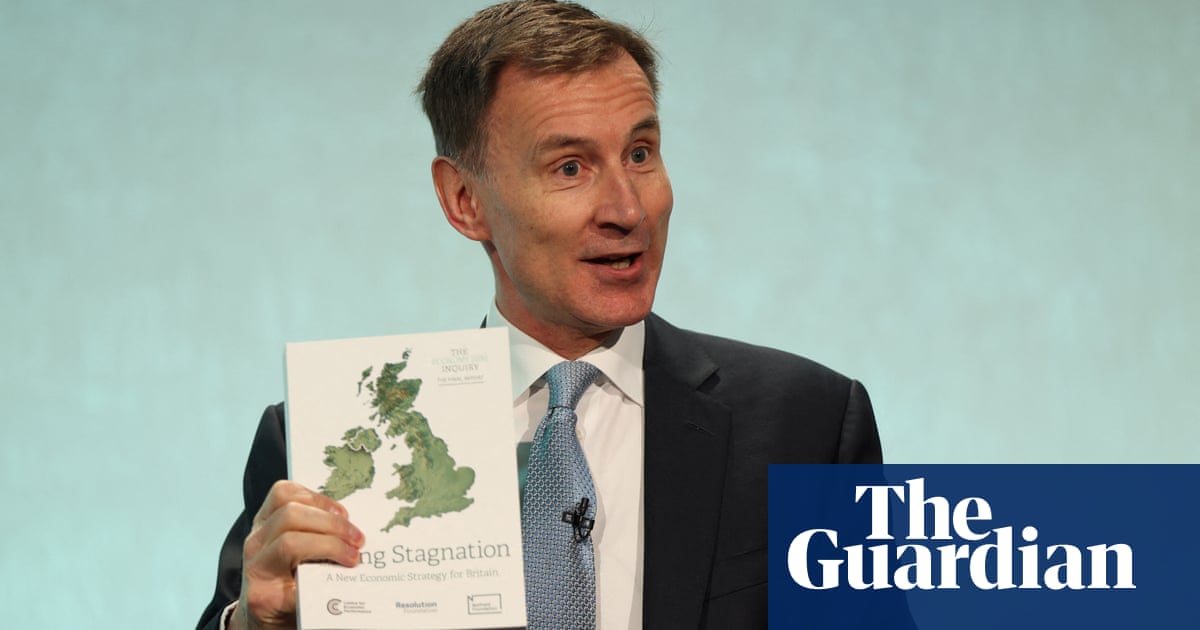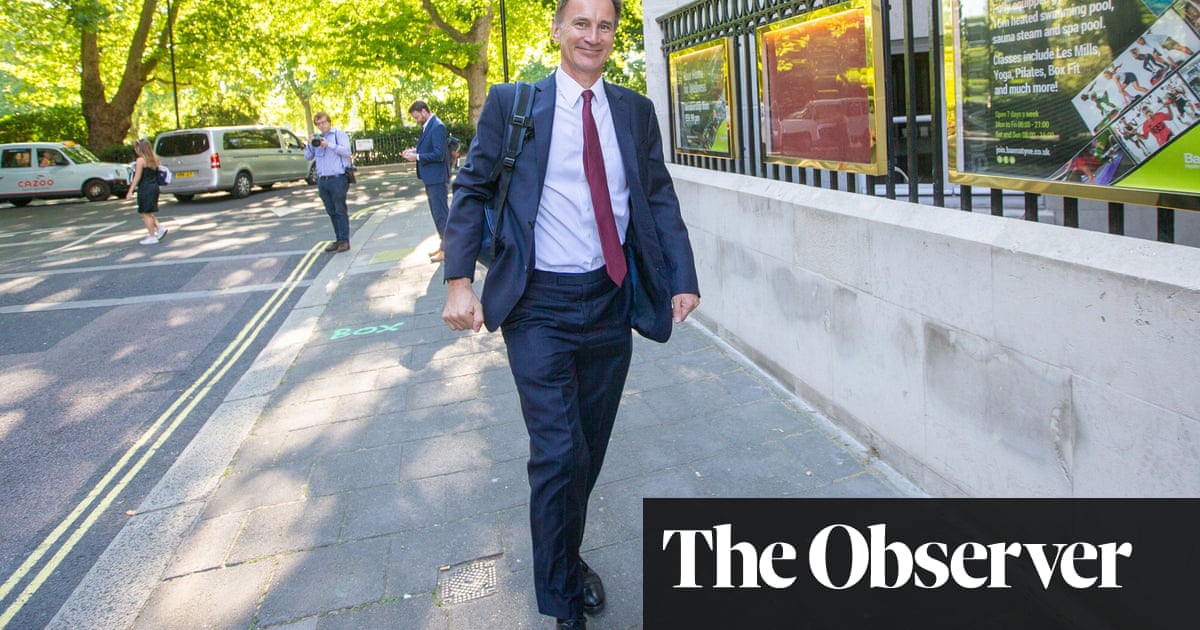
Jeremy Hunt has blamed Brexit for more than half a decade of political instability that has undermined business investment in the UK, as he sought to defend tax cuts paid for by public sector austerity to drive up economic growth.
The chancellor said the outcome of the 2016 EU referendum had led to “political chop and change”, before the Covid pandemic added to turbulence at the heart of government.
Asked at an event hosted by the Resolution Foundation thinktank and London School of Economics’ Centre for Economic Performance (CEP) if he recognised that political instability had damaged business investment, Hunt said there were “very particular reasons why we’ve had that”.
He said: “We had Brexit. That led to a hung parliament; that led to a politically incredibly challenging time. The British people had voted to leave the EU but parliament couldn’t agree how; and ultimately we had the fall of Theresa May’s government. And then we had the pandemic.”
His comments come after researchers at the Institute for Public Policy Research thinktank found more than a decade of “flip-flopping” through nine business secretaries, seven chancellors and 11 different economic strategies had damaged business investment in the UK.
Acknowledging that there had been changes in Whitehall triggered by Brexit, the chancellor said Rishi Sunak’s government had stabilised the economy after the meltdown triggered by Liz Truss’s mini-budget a year ago. “I hope we can have more stability going forward because absolutely that’s a better thing for policy,” Hunt said.
The chancellor was speaking at the launch of the Resolution Foundation and CEP’s Economy 2030 Inquiry final report, which said British workers were missing out on £10,700 a year after 15 years of relative decline on the world stage. Defending last month’s autumn statement, Hunt argued that offering £20bn of tax cuts to workers and businesses could help to boost economic growth by filling labour market vacancies and encouraging companies to invest.
Challenged that his plans included real-terms cuts to public sector investment, the chancellor said he was prioritising economic growth to raise tax income for the exchequer. “These are tax cuts that stimulate growth,” he said. “I do believe in tax cuts; I am a Conservative. I would like to reduce the size of the state as a proportion of GDP.”
The Institute for Fiscal Studies said after Hunt’s autumn statement that his spending plans for after the next general election had set the country on track for a “more painful” period of austerity than during the decade of belt-tightening under George Osborne.
It said Hunt’s autumn statement measures had been in effect “paid for” by freezing income tax thresholds and a bigger squeeze on the real-terms value of public service budgets and investment in national infrastructure.
Hunt challenged Labour to meet its pledge to balance the government finances through reducing the UK national debt as a share of the economy. “It’s not possible to meet our fiscal rule to reduce debt in five years and to increase borrowing by £28bn a year within five years. One of those things has to be false,” he said.
Speaking to a room packed with the nation’s leading economists and policymakers – including current and former officials from the Bank of England, Treasury and Office for Budget Responsibility – Hunt’s comments came before Keir Starmer was due to tell the same event that Labour would not “turn on the spending taps” if it won the next election.
Bolstering the view of some senior Labour MPs that their party leader was preparing to sign up to austerity-style public sector cuts, Starmer said it was “clear that the decisions the government are taking, not to mention their record over the past 13 years, will constrain what a future Labour government can do”.
Committing to “ramping up” investment in green infrastructure projects to £28bn within five years’ time, the Labour leader said he was “confident” such an increase in funding could be achieved within the party’s fiscal rules.












